The production of organic fertilizer involves the decomposition of organic matter by microorganisms, and fermentation bacteria play a crucial role in this process. These beneficial microbes break down complex organic materials like animal manure, crop residues, and other organic waste into simpler, nutrient-rich compounds that can be used as fertilizer. The quality of the final product largely depends on selecting the right fermentation bacteria to optimize fermentation and enhance the nutrient content of the organic fertilizer.
The Importance of Fermentation Bacteria in Organic Fertilizer Production
Fermentation is the biological process by which microorganisms break down organic matter into simpler substances. In the case of organic fertilizer production, fermentation bacteria are responsible for converting raw organic materials like manure, crop residues, and food waste into nutrient-rich humus and organic fertilizers. These bacteria work by breaking down cellulose, lignin, proteins, and other organic compounds into forms that plants can absorb as nutrients.
The choice of fermentation bacteria directly influences several key factors in organic fertilizer production, including:
- Fermentation Speed: The right bacteria can speed up the fermentation process, reducing the time required to convert raw materials into finished fertilizer.
- Nutrient Quality: Fermentation bacteria help in synthesizing nutrients like nitrogen, phosphorus, and potassium, making them more available for plant uptake.
- Odor Reduction: Certain fermentation bacteria can reduce the unpleasant smells often associated with organic matter decomposition, making the process more environmentally friendly.
- Pathogen Control: Some bacteria are capable of controlling harmful pathogens in the raw materials, ensuring that the final product is safe and beneficial for plant growth.
Types of Fermentation Bacteria Used in Organic Fertilizer Production
Choosing the right fermentation bacteria depends on the specific requirements of the organic fertilizer being produced and the type of raw materials being used. Several types of bacteria are commonly used in organic fertilizer fermentation, each with specific roles in the decomposition process.
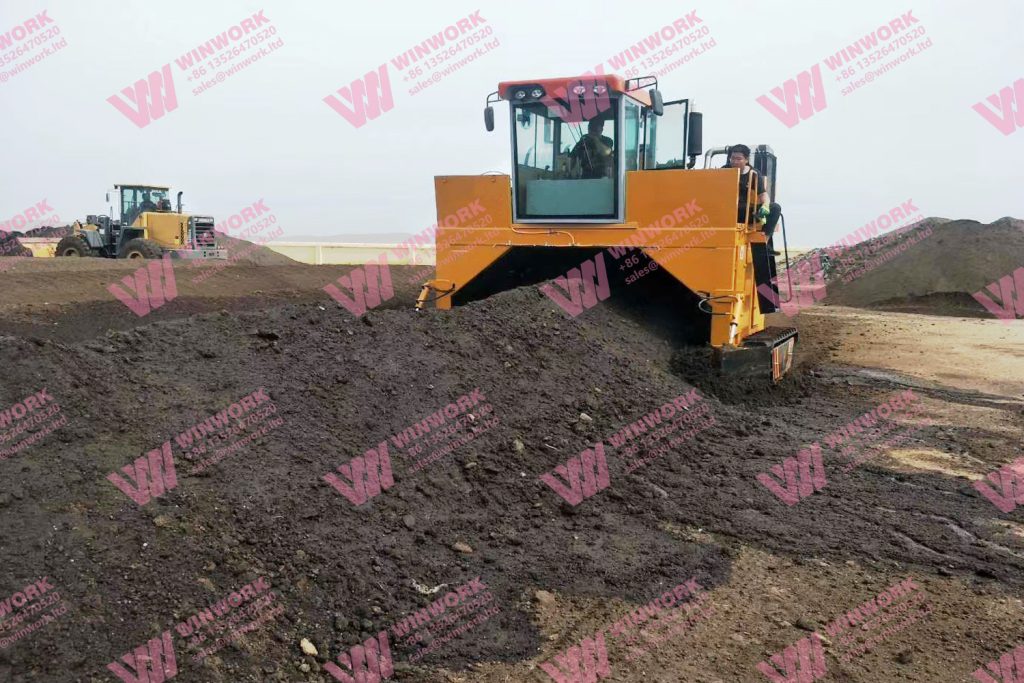
Compost Turner Working Site
1. Lactic Acid Bacteria (LAB)
Lactic acid bacteria are some of the most widely used microbes in organic fertilizer production due to their ability to ferment organic materials effectively. These bacteria produce lactic acid during fermentation, which helps lower the pH of the material, creating an acidic environment that is conducive to the breakdown of organic matter. Lactic acid bacteria are especially effective in fermenting food waste and animal manure.
- Benefits: They improve nutrient absorption, enhance soil microbial activity, and reduce the risk of odor production.
- Common Strains: Lactobacillus spp., Enterococcus spp.
2. Bacillus Species
Bacillus species, including Bacillus subtilis and Bacillus licheniformis, are known for their ability to decompose organic matter quickly and efficiently. These bacteria are also effective at producing enzymes that break down cellulose and other complex organic compounds.
- Benefits: Bacillus bacteria can help increase the nitrogen and phosphorus content of the fertilizer, as well as improve the texture and structure of the final product.
- Common Strains: Bacillus subtilis, Bacillus licheniformis, Bacillus amyloliquefaciens.
3. Actinobacteria
Actinobacteria are essential microorganisms involved in the decomposition of lignin and cellulose, which are common in plant residues like straw, leaves, and wood. These bacteria are particularly effective when the raw material is high in cellulose and requires specialized enzymes for degradation.
- Benefits: They enhance the breakdown of tough organic materials, such as wood chips and plant stems, and improve the overall nutrient content of the fertilizer.
- Common Strains: Streptomyces spp., Nocardia spp.
4. Nitrogen-Fixing Bacteria
Certain types of bacteria can fix nitrogen from the air and convert it into a form that plants can use. These nitrogen-fixing bacteria are beneficial for increasing the nitrogen content in organic fertilizers, making them more effective for plant growth.
- Benefits: Increased nitrogen levels, which are essential for plant development, particularly in leafy crops.
- Common Strains: Rhizobium spp., Azotobacter spp., Frankia spp.
5. Yeasts
Yeasts are another type of fermentation bacteria used in the production of organic fertilizers. They are particularly useful in fermenting liquid organic materials, such as food waste or fruit juices, into more concentrated forms of organic fertilizer. Yeasts help break down sugars and produce beneficial byproducts such as alcohols and acids.
- Benefits: Yeasts promote rapid fermentation and can contribute to nutrient cycling and the production of beneficial enzymes.
- Common Strains: Saccharomyces cerevisiae, Candida spp.
Factors to Consider When Choosing Fermentation Bacteria for Organic Fertilizer
Selecting the right fermentation bacteria for organic fertilizer production depends on various factors, including the type of raw materials, desired nutrient content, fermentation time, and environmental conditions. Here are the key factors to consider:
1. Raw Material Type
Different organic materials require different types of bacteria to break down effectively. For example:
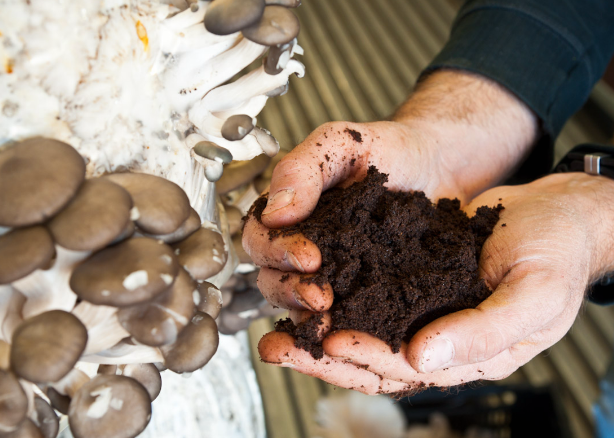
- Animal Manure: Lactic acid bacteria and Bacillus species work well for animal manure because they can break down the proteins and fats in manure efficiently.
- Plant Residues: Actinobacteria are effective for breaking down plant fibers, while Bacillus species are effective for decomposing general plant residues.
- Food Waste: Lactic acid bacteria and yeasts are particularly good at fermenting food waste due to their ability to break down sugars and other organic compounds.
2. Fermentation Temperature
Different types of bacteria have different temperature preferences. Most fermentation bacteria work best within specific temperature ranges, typically between 25°C and 40°C. Lactic acid bacteria and Bacillus species thrive at slightly warmer temperatures, while nitrogen-fixing bacteria may prefer cooler conditions.
3. Desired Nutrient Content
The goal of fermentation is to produce a nutrient-rich organic fertilizer. Different bacteria are capable of synthesizing different types of nutrients:
- Lactic Acid Bacteria and Bacillus species help improve nitrogen, phosphorus, and potassium content.
- Actinobacteria can help increase the levels of secondary nutrients, such as calcium and magnesium.
- Nitrogen-fixing bacteria increase nitrogen content, which is essential for plant growth.
4. Fermentation Duration
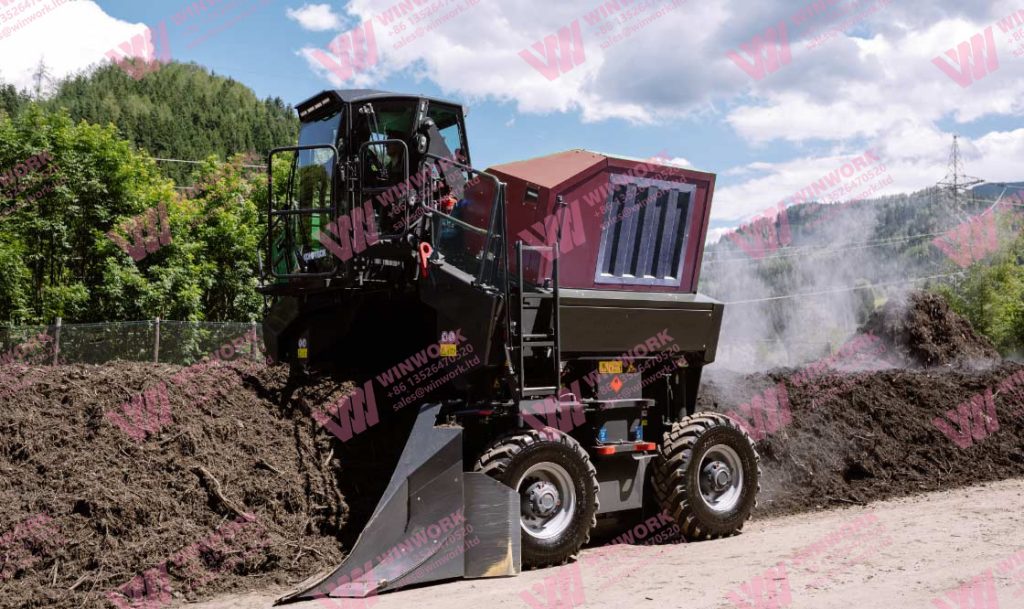
Some bacteria work faster than others. If a shorter fermentation time is required, yeasts or Bacillus species might be a good option due to their rapid fermentation capabilities. However, longer fermentation periods may benefit from the presence of Actinobacteria and lactic acid bacteria, which slowly break down tougher organic matter.
5. Environmental Conditions
The pH level, humidity, and oxygen availability can all impact the effectiveness of fermentation bacteria. Some bacteria prefer anaerobic conditions (without oxygen), while others thrive in aerobic conditions. Lactic acid bacteria typically require anaerobic environments, while Bacillus species can work well in aerobic conditions.
Conclusion
Choosing the right fermentation bacteria is critical to the success of organic fertilizer production. The ideal bacteria will depend on the raw materials being used, the desired nutrient profile of the final product, and the environmental conditions during fermentation. By understanding the specific needs of the fermentation process, producers can select the most appropriate bacteria to enhance nutrient quality, improve fermentation efficiency, and create a high-quality organic fertilizer that benefits both plants and the environment.


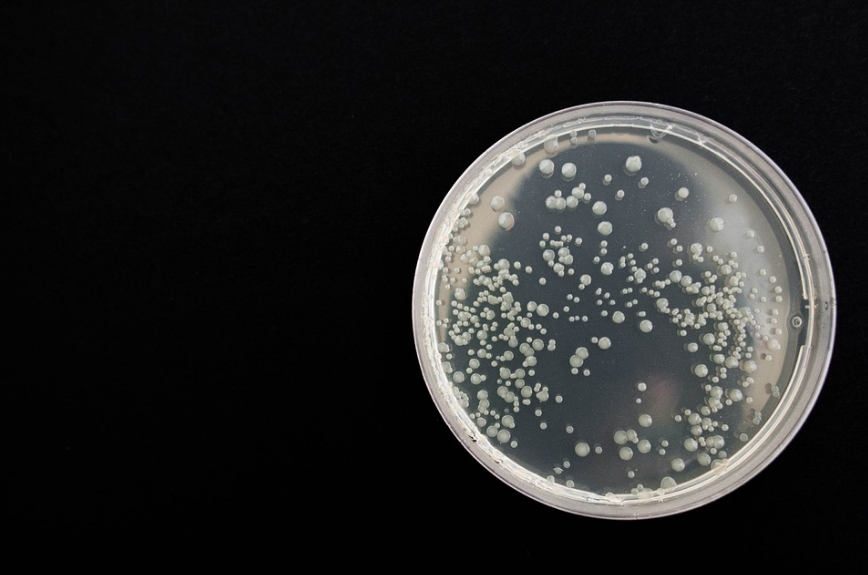
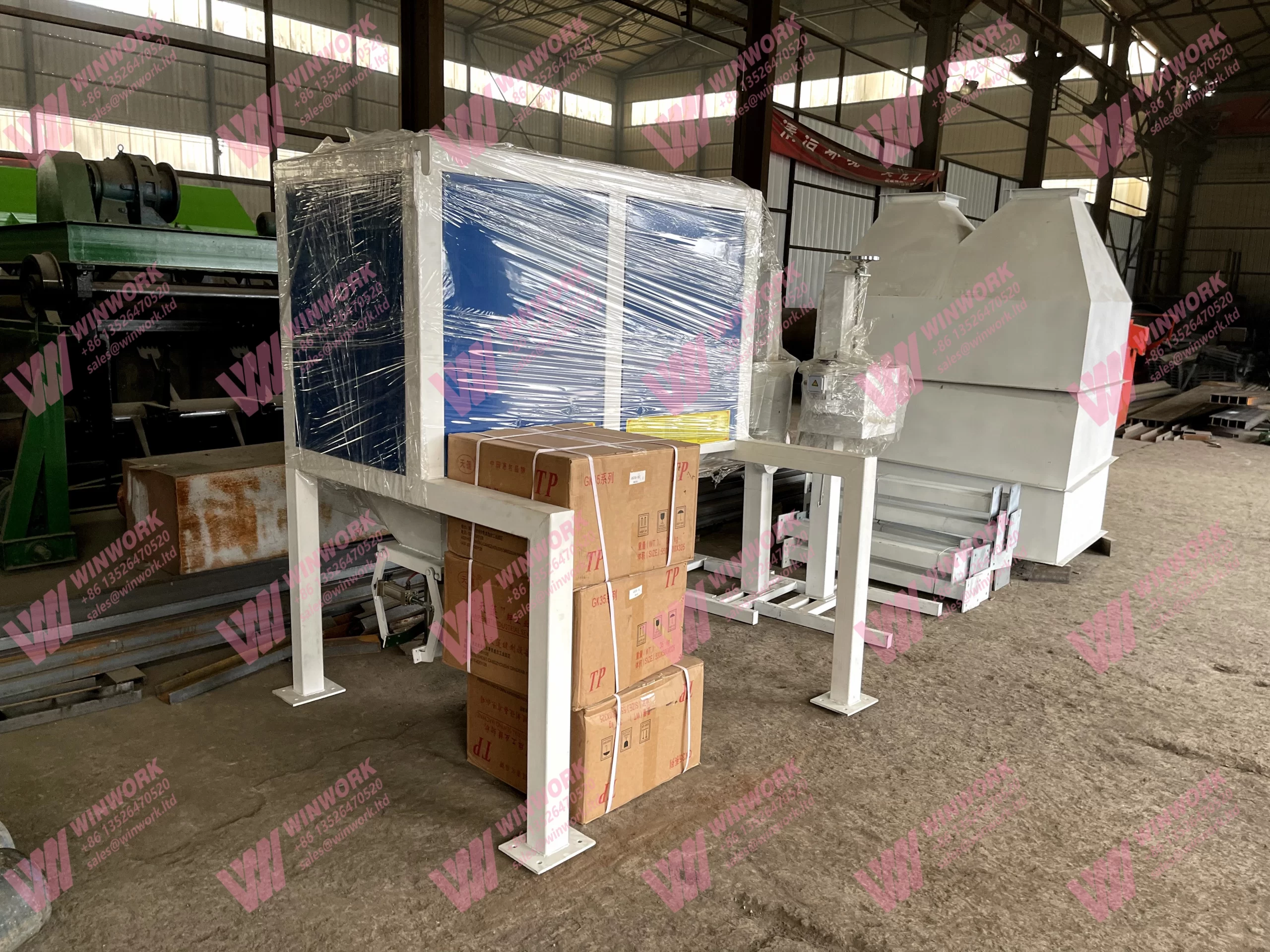
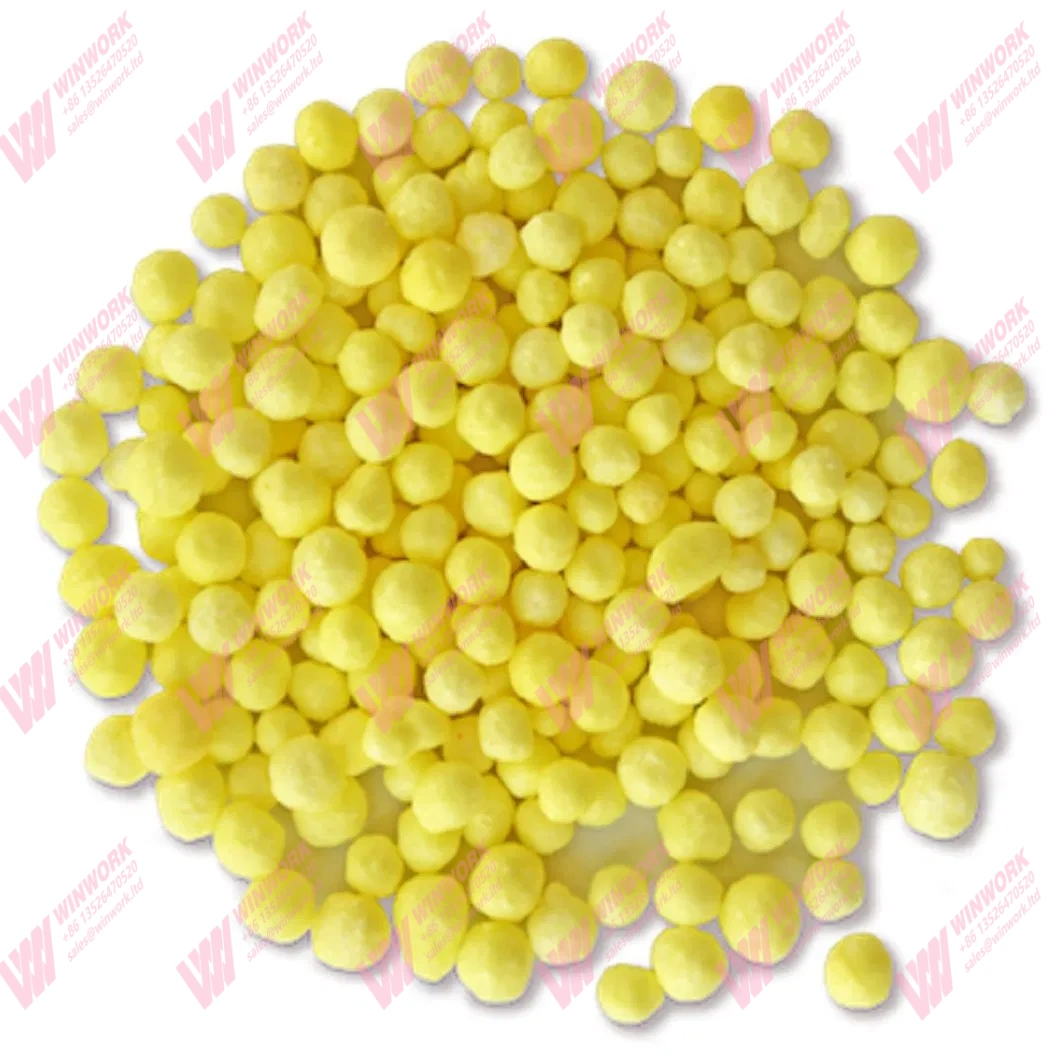
Get A Quote